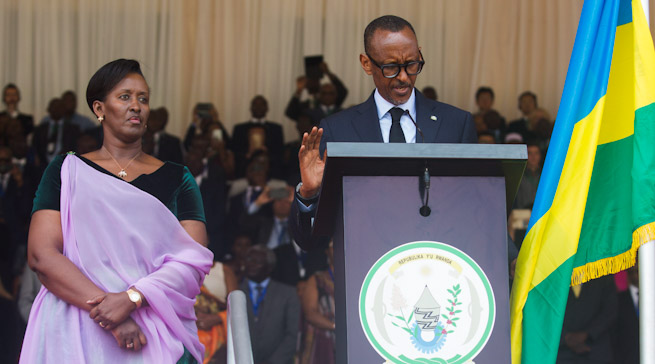
Ruto among 23 African leaders heading to Kigali for Kagame’s swearing » Capital News
KIGALI, Rwanda, Aug 10 — At least 23 Heads of State and government are expected to attend the inauguration of Rwanda’s President Paul Kagame after he secured a 99 per cent victory in the July 15 elections.
Kagame, 66, who ran under the ruling Rwandan Patriotic Front (RPF) ticket, secured his fourth term by overwhelmingly defeating his two challengers — Frank Habineza of the Democratic Green Party of Rwanda and independent candidate Philippe Mpayimana.
Notable leaders expected to attend the event include President William Ruto and Tanzania’s President Samia Suluhu.
Rwanda’s Office of the Government Spokesperson said Saturday both leaders had confirmed attendance.
Uganda’s Chief of Defence Forces, General Muhoozi Kainerugaba, will also be present.
The inauguration ceremony, set to take place at the ultra-modern Amahoro Stadium in Rwanda’s capital, Kigali, will host at least 40,000 attendees.
The event will feature a military parade, traditional dances, and other cultural highlights.
Capital News observed heightened security in Kigali in preparation for the event.
While some critics have dismissed the vote saying it was neither free and fair, election observers including Kenya’s former Chief Justice David Maraga who led a 55-member team comprising 55 officials from East Africa Community(EAC) Partner States and the East African Legislative Assembly commended the organization of the election labeling the process as “one of the best”.
Speaking in Kigali following the presidential election, in his capacity as the Head of the EAC Election Observation Mission to Rwanda, Maraga praised the exercise as remarkably peaceful and orderly.
“The electoral process was very orderly and very peaceful. In fact, it is one of the best electoral processes I have seen. The organization was super,” Maraga said in a briefing with reporters on July 17.
Sustained criticism
Kagame, who has ruled Rwanda since 2000, is credited with transforming the country economically and socially, rebuilding it from the devastation of the 1994 genocide against the Tutsi, which left 800,000 dead.
However, his leadership has drawn both praise and criticism, both at home and abroad.
President Kagame has faced heavy criticism from the United Nations, the United States, and the Democratic Republic of Congo (DRC) over allegations of backing the M23 rebels, who continue to cause unrest in eastern DRC.
President Félix Tshisekedi of DRC has singled out Kagame as the country’s foremost threat with Kigali dismissing these allegations as “baseless”.
In March, amid escalating tensions between Rwanda and DRC, Kigali reiterated its demand for the demobilization and repatriation of the DRC-backed Democratic Forces for the Liberation of Rwanda (FDLR) rebel group as a precondition for de-escalating the conflict with Kinshasa.
This demand followed the United States’ call for Rwanda to immediately withdraw its troops from the DRC and remove its surface-to-air missile systems, citing concerns over civilian safety and commercial flight operations in eastern DRC.
However, President Kagame maintained that he will not back down, emphasizing that DRC support for FDLR “is a matter of state policy, not the choice of individual actors”.
“Ending Congolese state support for FDLR, and ensuring their demobilization and repatriation to Rwanda, is a non-negotiable requirement to protect Rwanda’s territorial integrity and guarantee the preservation of our hard-won national unity for future generations,” Kigali said in March, asserting that Rwanda reserves the right to take any legitimate measures to defend itself so long as the threat exists.
Kagame has been strengthening his military position on the border with DRC amid mounting tension with Kinshasa which observers argue is threatening the security and stability of the Great Lakes Region.
